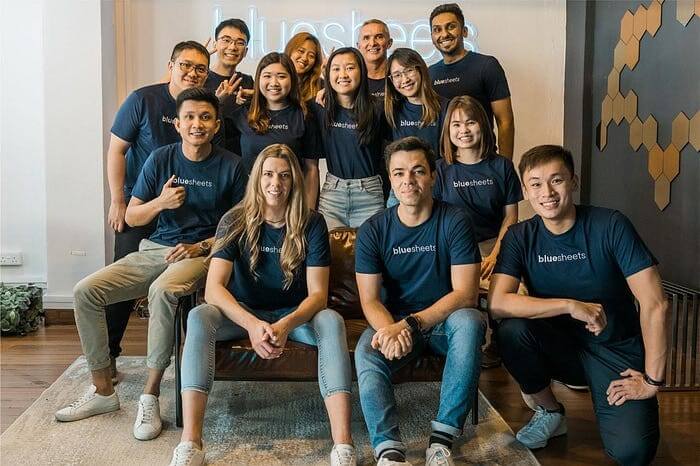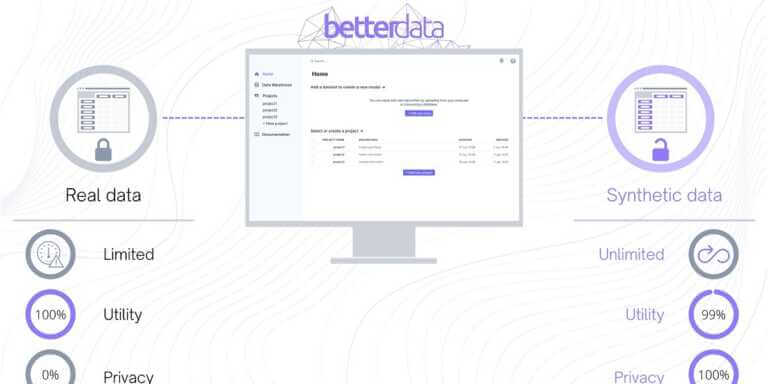
BLOG
ask a VC: Dymon Asia

share:
We’re speaking to Singapore’s leading VC funds to find out about their thoughts on the current state of the Southeast Asian startup and venture ecosystem, and what they currently are looking for in companies.
This week we’re speaking to Jennifer Ho & Sabiha Sultan from Dymon Asia.
how is the Southeast Asian tech startup and VC ecosystem looking in 2019?
It’s looking really good. One of the nice things is that you’re starting to see second-time founders, as well as founders coming out of the bigger tech companies. It means we’re working with more experienced teams and founders, which is different to what we were seeing in the last two to three years.
We also see a lot of startups now that are tackling more technical problems. The landscape has shifted from big market plays like ride hailing & marketplaces. In these areas, we’ve noticed that the winners have either been identified, or the field has been narrowed down to 1-3 strong players – now entrepreneurs are looking for other opportunities.
Consider digital health. In the first wave we got the likes of Halodoc addressing the immediate problems like accessing medical providers. Now the problems that are being solved are more specialised, like companies using AI image recognition on MRI scans.
the number of VCs seems to grow each year. Will this continue and do you see more large US funds setting up shop in Singapore?
Yes, we see this continuing. Southeast Asia is a really exciting market now. Not only because the talent pool is getting deeper, and we’re getting some early successes, but because there’s so many developing market issues the ecosystem is solving.
Affordability of (and access to) financial services and healthcare remains a huge unsolved issue in some parts of Southeast Asia. The ecosystem is going to develop in more interesting ways than the US has over the last 10 years, and investors are starting to see that.
has the series B crunch been resolved?
A couple of things are happening here. On the one hand, there are definitely more Series B funds setting up shop, and more funds that are writing bigger checks.
That said, the series B crunch was sometimes being talked about by companies who had completed a series A and who were raising funds before they’d really reached a series B valuation. Now though, we’re seeing founders get more savvy about their fundraising strategy as well as becoming more disciplined in their fundraising roadmap. For example, understanding how much they need to raise in their series A to get them to a strong position to do their series B.
(Are you about to raise your Series A? Read our Kindrik Partners guide to raising series A capital in Southeast Asia.)
what has been the impact on the ecosystem of the tech unicorns?
On a basic level, it’s making tech a more desirable area to go into after you graduate, which is helpful to the ecosystem. It’s also encouraging because you have employees inside these companies for 3-5 years who are now thinking about establishing their own companies and who have built the necessary connections in the ecosystem. These unicorns do a great job at fostering these capabilities.
We’ve also noticed a trend (that may be healthy or not) of companies who are building specifically with an exit strategy into the unicorns. It’s great because strategic acquisitions remain the most realistic prospect for VC exits in Southeast Asia.
On the other hand, it’s risky to be optimizing for an exit to 1-3 likely buyers – whose strategic priorities, or decision to build vs. buy, is not within your control. For instance, building a solution specifically targeting large e-commerce platforms. You’re dependent on the platform for your customer acquisition, but at the same time, it’s a risky bet that they may just want to build the solution in-house, or that they may want to shift direction.
people talk about Indonesia due to its market size, but who else in Southeast Asia is producing amazing startups?
We’ve been spending a lot of time in the Philippines. There are some very exciting companies there. We’ve found that there is a high-quality founder pool, and that startups in the Philippines are starting to think regionally a lot earlier.
You compare this to somewhere like Indonesia, where this isn’t as necessary and you can spend your life in that market. The country is starting to get more interesting wins, which is encouraging more people to go into startups.
what kind of startups are catching your eye. How has that changed in the last 12 months?
Insurtech is an interesting space to watch. It’s at about the same stage of interest that fintech was two to three years ago, in terms of the number of startups being founded, the level of interest from insurance companies to work with or partner with insurtechs. We are also starting to see founders who can really combine sector-specific knowledge of insurance pricing and risk with the ability to build products with great UX and UI.
Personally, I’m also hoping to see cyber insurance start to take off in this region in the next few years. Historically, cyber insurance was poorly written, poorly priced and crafted to ensure the insurance company wouldn’t need to pay out. In the U.S. and Europe, we’re starting to see companies who have a more nuanced understanding of the risks and the market creating appropriately priced insurance products that provide better coverage to their customers. This is something Asia sorely needs.
any predictions for the SEA ecosystem over the next two years?
There will be more second-time founders and more experienced founders, and a more vibrant startup landscape. As a specialist fund for healthtech and fintech, we used to know everyone in the scene. As the scene has grown, it’s gotten harder, with more founders to track. But I see this as a positive.
tips for founders pitching to you?
I think some founders spend so long with their problem that it becomes too obvious for them. Which means that when they pitch, they start with the solution they want to build, without fully explaining what the problem is they want to solve. This particularly happens with technical founders who are building a piece of technology that could have broad applications across a range of industries.
I also recommend a disciplined process to raising funds. Be systematic. Have your information ready before they ask for it. This means know where you’ll be in two years, revenue numbers and projections, hurdles to getting key contracts in place, etc. When you’re on your game throughout the fundraising process, your investors will trust that this translates to the day to day job of running your business too.
Are you looking to raise funds for your startup in Southeast Asia? Our team of lawyers are market experts in tech and VC. We’ve gained this experience the only way that works – by doing deals (hundreds of them) and by immersing ourselves in the tech ecosystem.
If you need help with your term sheet or have questions about raising your round, book a time to speak to one of our lawyers.
explore our other blog posts

